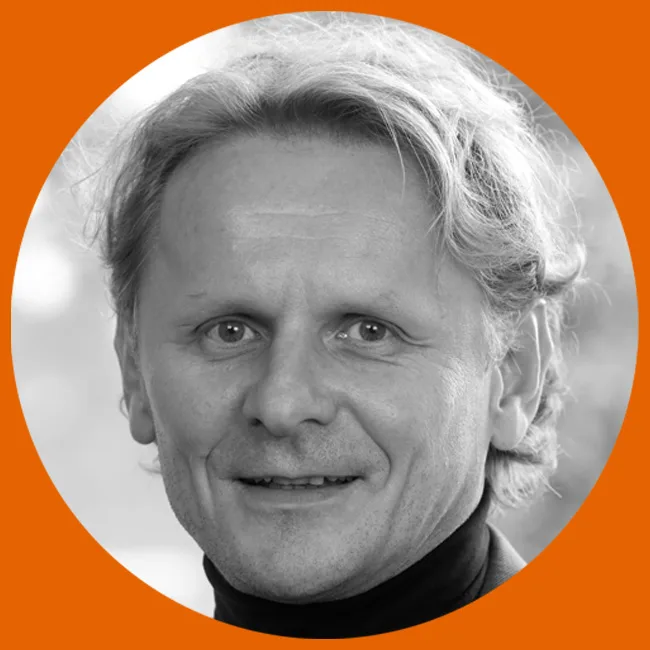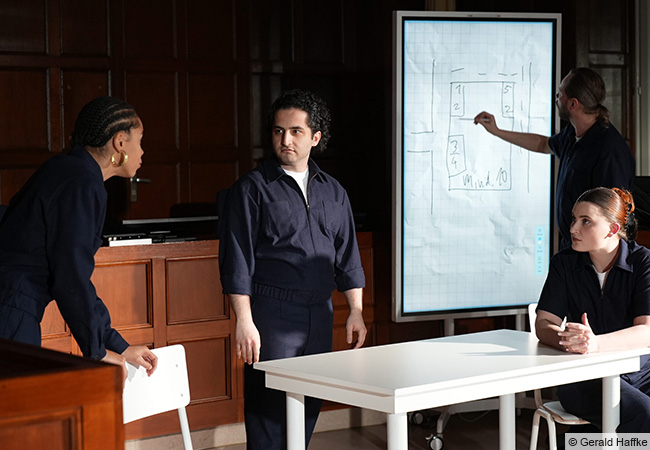We wanted to know: Why did our scientists want to become scientists in the first place? What are they working on, and what do they still want to discover? You can read their answers to these questions and more – including how they motivate their working groups and what they could really do without – as part of this series, which successively introduces some of the people behind the research conducted at Goethe University.

Name: Ivan Đikić
Profession: Molecular Biologist and Biochemist
Place of work: Institute for Biochemistry II and Buchmann Institute for Molecular Life Sciences
Why did you become a scientist?
I was a curious child and grew up in a supportive environment that led me to study medicine, with a later focus on biomedical science. I like science very much: It is a creative profession that enables us to express talents and at the same time contributes to the progress of our society – two characteristics that I have come to highly appreciate throughout my career.
What are you currently working on?
My scientific group studies mechanisms linked to the development of human diseases, including bacterial and viral infections as well as tumors. These diseases are characterized by fast evolution and a lack of efficient therapeutics. I am particularly interested in larger conceptual questions about commonalities to these diseases, as I believe that finding these will enable us to develop better therapeutics. In our daily work, we need multidisciplinary approaches, a culture of cooperation between basic and clinical scientists, as well as use of advanced technologies.
What do you still want to find out/discover?
I would like for our basic discoveries to serve as a base to develop more efficient treatments for infectious diseases and cancer.
What does your ideal workday look like?
There is no ideal workday as my days are very different, filled with a lot of discussions, mentoring students and postdocs, evaluating new data, giving lectures, writing grants, meeting interesting people, traveling, etc. Besides that, the exciting part of scientific life lies in developing new ideas and conceptualizing new hypotheses in moments of relaxation, during morning runs or while chatting in a bar with colleagues – as we did last night in Cambridge.
What could you easily do without in your daily work?
I must confess that administrative meetings are my least favorite. 🙂
What I like about my job is…
…freedom and creativity, working with talented people and having the potential to move frontiers.
How do you motivate your working group?
By maintaining a high level of energy, continuously injecting new ideas and at the same time giving a lot of freedom to group members. They like this style; it has proven to be successful.
To me, Goethe University Frankfurt is…
… a great place to conduct science with excellent colleagues and in a multidisciplinary environment. I highly appreciate the opportunity to have two labs, one at my Institute at the medical campus in Niederrad, and one at the Buchmann Institute, located at the life science campus in Riedberg. In addition, I am a fellow of the Max Planck Institute of Biophysics at Riedberg, giving me additional opportunities to use highly sophisticated computational and structural approaches. It is not always easy to coordinate these two distant labs, but the effort is absolutely worth it, as my major discoveries depend on integrating diverse technologies from these two Goethe University campuses.
What should society know about your research? Are there common misconceptions, and if so, which?
They should know that we are working very hard and for a very long time with the goal of improving human health. Society often thinks that science can offer all the answers very fast. This is obviously a misconception, and also part of the reason we faced so many problems when it came to the public’s understanding of changing recommendations during the corona pandemic.
Which famous personality would you like to swap days with?
I can’t think of anyone, although I would be interested to spend few days in the space shuttle heading to Mars.
How do you get your mind off research?
I think about research a lot but can also switch to other topics easily. Raising three kids is the most efficient way of learning how to switch to a completely different life mode. Also, having a lot of friends and communicating with people outside science, and engaging in hobbies like sports, music, or travel lets me focus on completely different, relaxing or active worlds.
Prof. Dr. Ivan Đikić is a member of the EMTHERA cluster project. The research network investigates the processes that underlie systemic diseases at the interface of infection, inflammation and immunity.
More information on Prof. Ivan Đikić’s research topics is available here.







